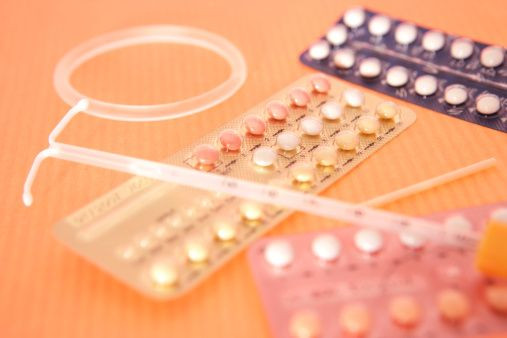Truvada, Vaginal Rings Can Prevent HIV In Adolescents, Study Says

New research has found an effective way to prevent HIV in adolescent girls. In the 9th IAS Conference on HIV Science in Paris, two teams of investigators reported that studies showed a monthly vaginal ring and a daily oral tablet, both containing anti-HIV drugs, were safe for use by adolescents.
This research marks the first time medication for the prevention of contracting HIV was specifically tailored and evaluated for adolescents younger than 18 years old, says a statement by the National Institutes of Health (NIH).
Read: HIV Cure Hopes Revived After South African Kid’s Remission, Possible Immunotherapy Links
The NIH which partly funded the study added that this was the first clinical trial involving testing of oral Truvada — the tablet which contains the HIV prevention drugs tenofovir and emtricitabine as pre-exposure prophylaxis, or PrEP (way for people who are at substantial risk of getting HIV to prevent the infection by taking a pill every day), for adolescents.
The study— called Choices for Adolescent Prevention Methods for South Africa, or CHAMPS PlusPills —involved 148 healthy, sexually active South African adolescents — 99 girls and 49 boys —between age 15 and 19 in Cape Town and Johannesburg. Participants were asked to take oral Truvada on a daily basis for at least three months and up to one year if they chose to do so.
Most participants chose to take Truvada. However, some discontinued and frequently cited low-grade side effects such as nausea or a headache. At the end of the year, 38 percent of participants tested positive for tenofovir which prevented HIV among approximately 64 percent of participants who took the drug.
According to the NIH, young women between the age group of 15 to 24 accounted for 20 percent of new HIV infections globally in 2015, in spite of composing only 11 percent of the adult population.
The experimental vaginal ring was designed to be similar in size to the contraceptive diaphragm and released an antiretroviral drug called dapivirine, another drug that could prevent HIV. An earlier study tested a ring that released dapivirine that found that using the ring most or all of the time reduced the risk of HIV infection in women by at least 56 percent.
Conducted in cities across the U.S., the ring was given to 96 sexually active girls aged 15 to 17. 87 percent of the girls had detectable levels of the drug in their vagina and almost all of them (about 95 percent) said the ring was comfortable to use. Before the trial, there were concerns that the girls' partners might not like the feel of the ring during intercourse, however, it reportedly enhanced pleasure. The results of this study were also reported at the Paris conference Tuesday.
Read: Yohimbine, Supplement For Sexual Enhancement In Adults, Harmful For Kids: Study
“Adolescents and young people represent a growing share of people living with HIV worldwide,” noted Anthony S. Fauci, M.D., director of the National Institute of Allergy and Infectious Diseases (NIAID), part of the National Institutes of Health (NIH). “Science has demonstrated that the HIV prevention needs of adolescents may be different than those of adults, which is why these new study findings are so important.”
Both the studies were partly or wholly funded by National Institute of Allergy and Infectious Diseases (NIAID).
© Copyright IBTimes 2024. All rights reserved.





















